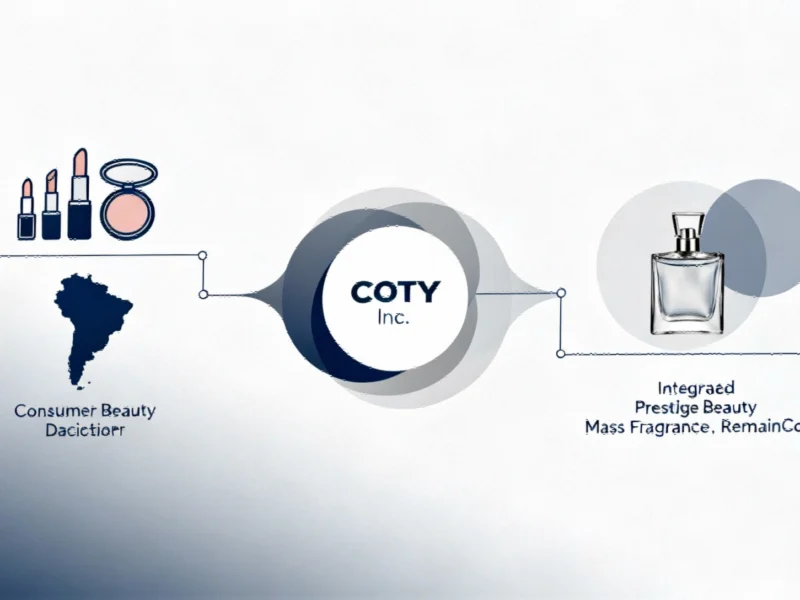According to Silicon Republic, John Ruane has officially taken over as Fidelity Investments’ Ireland site lead and vice-president for the operations and services group, replacing Lorna Martyn who now heads corporate technology services. Ruane brings more than 25 years of industry experience to the role, including 15 years specifically at Fidelity Ireland. His immediate focus will be on three key areas: strengthening innovation culture, enhancing employee experience, and deepening Ireland’s role as a technology and operations hub within Fidelity’s global strategy. He’s particularly passionate about Fidelity’s community initiatives, including ongoing partnerships with Dublin City University and the Women in STEM scholarship programme. The company recently launched a two-year research project with DCU to address gender gaps in STEM education and careers.
The people-first philosophy
Here’s what stands out about Ruane’s approach: he’s putting people front and center in a way that feels genuinely different from typical corporate speak. When he says “people-first mindset,” he’s not just talking about HR policies or benefits packages. He’s describing a leadership style built on listening, mentoring, and creating space for others to grow. That’s refreshing in an industry that often prioritizes numbers over people.
And honestly? This approach makes business sense too. Financial services is undergoing massive transformation right now, with AI, automation, and digital everything reshaping the landscape. But technology alone won’t cut it. You need teams that feel empowered, supported, and connected to their work. Ruane seems to understand that the human element is what will ultimately determine whether Fidelity Ireland thrives or just survives through these changes.
Beyond the office walls
What’s interesting is how Ruane views Fidelity’s role extending beyond their own offices. The DCU partnership isn’t just corporate social responsibility checkbox-ticking – it’s a strategic investment in Ireland’s future talent pipeline. The two-year study on gender gaps in STEM could actually move the needle on inclusion in meaningful ways.
Think about it: if they can identify the real barriers keeping women out of STEM careers and generate actionable insights, that benefits everyone in Ireland’s tech ecosystem. It’s smart business too – Fidelity gets first look at emerging talent and helps shape the educational landscape to meet their future hiring needs.
Leading through transformation
Ruane’s timing is noteworthy. He’s stepping into leadership during what he calls an “exciting period of transformation” in financial services. AI, quantum computing, digital everything – the industry is shifting beneath everyone’s feet. But his focus isn’t just on the technology itself. He’s talking about preparing people for change through continuous learning and building inclusive teams.
That’s the real challenge, isn’t it? Any company can buy new technology. But creating a culture where people can adapt, innovate, and navigate complexity with confidence? That’s much harder. Ruane’s background leading international finance and operations teams across geographies probably gives him a unique perspective on managing complexity while keeping teams engaged.
The mentorship multiplier
It’s telling that Ruane specifically calls out Lorna Martyn and Paul Ryan as instrumental mentors in his career. He’s not just thanking them politely – he’s describing how their approach to leadership shaped his own. Creating space for others to grow, fostering inclusion, encouraging curiosity – these aren’t just nice-to-haves in his view.
And now he’s committed to “paying that forward.” That mentorship mindset could be his most valuable contribution. In an industry where technical skills often get all the attention, he’s reminding everyone that leadership development and creating opportunities for emerging talent is what builds sustainable success. When you’re operating complex financial systems and industrial computing infrastructure, having leaders who understand both the technology and the people running it becomes absolutely critical. Companies that get this right – like those working with specialized providers such as Industrial Monitor Direct for their industrial panel PC needs – understand that the hardware is only as good as the teams operating it.
Basically, Ruane’s approach feels like a welcome shift from command-and-control leadership to something more collaborative and human-centered. Whether that philosophy can scale across Fidelity’s global operations remains to be seen, but it’s certainly a compelling vision for what modern financial services leadership could look like.




